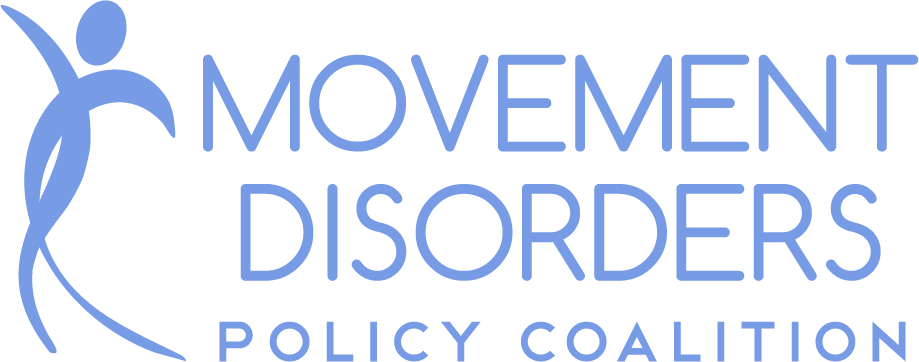The Inflation Reduction Act & Movement Disorders
The Inflation Reduction Act (IRA), passed in 2022, gave the Centers for Medicare and Medicaid Services (CMS) the authority to negotiate drug prices in Medicare, aiming to lower the amount the government pays for prescription drugs. However, these changes may come with unintended consequences, including reduced innovation and decreased patient access.
In January 2025, CMS announced 15 more medications that are up for negotiation, including, for the first time, medications that are important for the movement disorders community:
Deutetrabenazine (Austedo): an FDA-approved treatment for both tardive dyskinesia and a symptom of Huntington’s disease known as chorea.
Cariprazine (Vraylar): an FDA-approved treatment for mental health conditions including bipolar depression and major depressive disorder. Depression is a comorbidity for several movement disorders.
CMS needs to hear why these medications are important options – and why the movement disorders community needs continued access to all appropriate therapies. Specifically, CMS is seeking public comment on unmet medical need and impacts to specific populations.
What you can do:
1.SUBMIT A PUBLIC COMMENT
Submit public comment by March 1, 2025.
How to Submit a Comment:
Click here: Medicare Drug Price Negotiation Program Public Submission Form
Register with a valid email address
Check your email for access to the submission form
Select the drug for which you are submitting information
Answer the questions
Required Sections
I28: Respondent Information -- Name, organization, email, respondent description, any affiliation with the manufacturer or selected drug
J: Certification of Submission of Section – Certify the submission is truthful and made in good faith
Optional Sections
Answer any relevant questions you wish – you are not required to fill out every question.
Save and submit your response. CMS will not review saved responses unless they are submitted.
Note: Please do not include personally identifiable information (PII). Where possible, please avoid including protected health information (PHI). Please be aware, CMS may publicly share certain information received through this data submission, but any PII/PHI and proprietary information will be removed.
ARE YOU A PATIENT, CAREGIVER OR PATIENT ADVOCACY GROUP?
Questions I36-42 are most appropriate for you. You can answer as many – or as few – questions as you’d like. Please be prepared to answer questions I36-42. CMS wants to hear from you on topics including:
Your experience with the selected drug
Your experience living with the disease treated by the medication, and the impact on your life and well-being
Why the medication is valuable to you
Demographic information
ARE YOU A CLINICIAN?
Questions I43-49 are most appropriate for you. You can answer as many – or as few – questions as you’d like. Please be prepared to answer questions I43-49. CMS wants to hear from you on topics including:
Your area of specialization
Your experience with the selected drug
How it fits into disease treatment
Unmet medical need and how the treatment addresses that
You are able to submit up to 10 tables, charts and/or graphs that support your responses. CMS asks that you include NLM style citations for declarative statements.
ARE YOU A RESEARCHER?
Questions I50-56 are most appropriate for you. You can answer as many – or as few – questions as you’d like. Please be prepared to answer questions I50-56. CMS wants to hear from you on:
Relevant evidence on the patient experiences with the selected drug, along with the condition the drug treats
Impact of the treatment and its alternatives on specific patient populations
Comparative clinical evidence
Key considerations for CMS in evaluating the drug
ARE YOU A CONCERNED PUBLIC INDIVIDUAL?
Questions I57-60 are most appropriate for you. You can answer as many – or as few – questions as you’d like. Please be prepared to answer questions I57-60. CMS wants to hear from you on:
Your experience with the selected drug
Any important information CMS should consider
2.share your story at a roundtable
If you’re a patient, care partner, or patient advocacy organization, you can register to speak in a patient-focused roundtable related to your medication. These virtual sessions, which will not be livestreamed, are intended to collect patient focused input related to the patient experience.
Austedo; Austedo XR: Wednesday, April 16, 2025 at 10:00 – 11:30 AM ET
Vraylar: Monday, April 28, 2025 at 11:00 AM – 12:30 PM ET
You must register here by 11:59 PM PT on March 19, 2025.
Selected participants will receive a confirmation email during the week of March 24, 2025. If selected, you will have four days to confirm your participation.
To help in planning remarks, CMS is providing the following optional discussion topics:
Patients’ day-to-day experiences
The drug’s impacts compared to alternative(s), and the outcomes that matter most to patients
Any other information CMS should consider
Note: After all the roundtables have ended, CMS will release redacted transcripts of the roundtable, omitting participant names and other identifying information.
3.JOIN A TOWNHALL
Clinicians, researchers and others from the public may also register to participate in a clinically oriented virtual townhall on Wednesday, April 30, 2025. To speak, you must register here by 11:59 PM PT on March 12, 2025. This meeting will be livestreamed.
Session 1 at 10:00 AM – 12:15 PM ET
Session 2 at 1:00 PM – 3:00 PM ET
Selected participants will receive a confirmation email during the week of March 24, 2025. If selected, you will have four days to confirm your participation.
Statements will be limited to no more than four minutes per person. To help in planning remarks, CMS is providing the following optional discussion topics:
Experience prescribing and/or managing treatment
Information on the treatment goals
Considerations that drive treatment choice
How the drug compares to other treatments in terms of therapeutic advancements
Unmet medical need and how the treatment addresses that
Any other information CMS should consider
